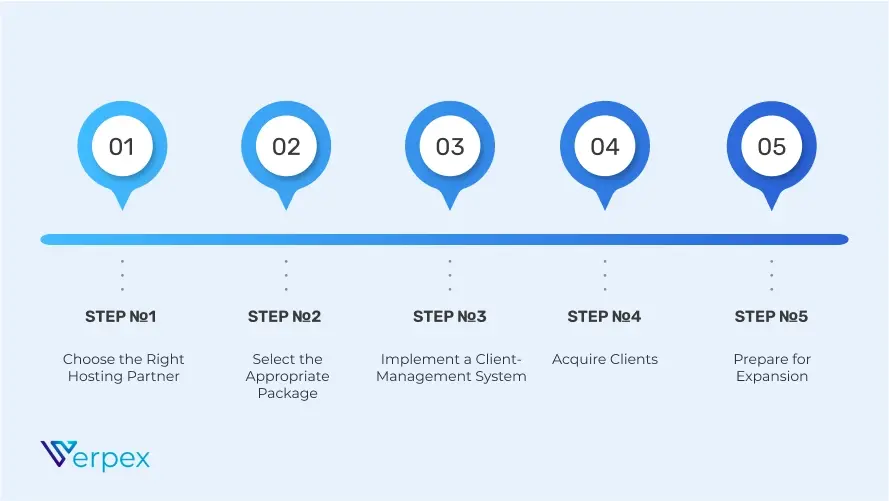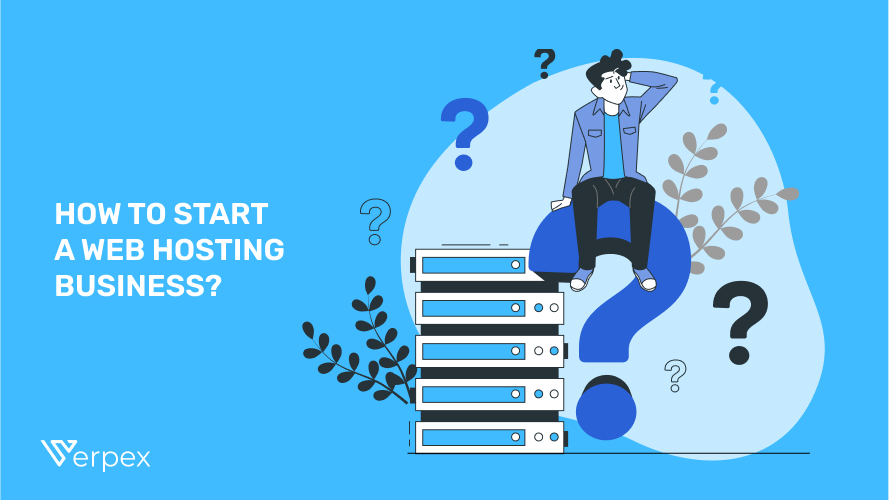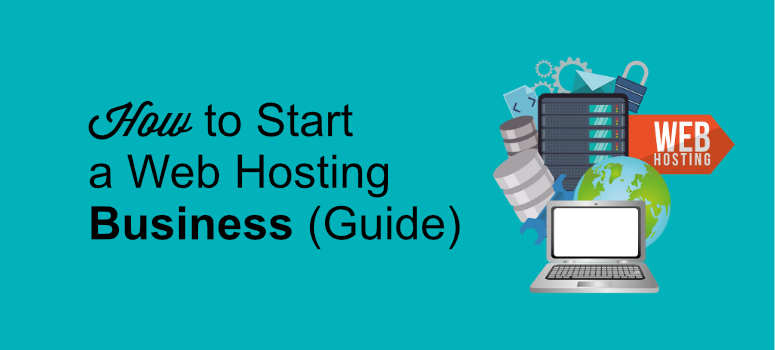Starting a web hosting business can be a profitable venture. It offers a steady income and growth potential.
Web hosting is essential for anyone needing a website. With the rise of online businesses, the demand for web hosting services has increased. This makes it an attractive business opportunity. But starting a web hosting business requires careful planning and execution.
From choosing the right hosting plan to marketing your services, each step is crucial. In this guide, we will break down the process into simple steps. You will learn what it takes to start and run a successful web hosting business. So, if you are ready to enter the world of web hosting, keep reading. This guide will help you get started on the right foot.
Introduction To Web Hosting
Web hosting is a service. It lets people publish a website or web page on the Internet. Companies offer space on a server they own. This space stores your website files. Web hosting is like renting a house for your website. Without it, your website cannot be seen online.
Reliable web hosting is very important. It ensures your website is always online. Fast hosting improves user experience. This keeps visitors on your site longer. A secure host protects your data from hackers. Good hosting supports business growth. Choose a host wisely.
Market Research
Define your ideal customers. Are they small businesses, bloggers, or large companies? Understand their needs. This helps to create better services. Use surveys to gather data. Look at forums and social media. See what people discuss about web hosting. This info is valuable.
Check other web hosting companies. Look at their services and prices. See what they do well. Find where they fall short. Reviews and ratings are helpful. Learn from their mistakes. Offer something unique. This sets you apart. Study their marketing strategies. Adapt and improve them. This gives you an edge.
Business Plan
Clear goals are important for your web hosting business. Decide what you want to achieve. Set short-term and long-term goals. Short-term goals might include getting your first 10 customers. Long-term goals could be growing your business to 500 customers in two years. Make sure your goals are specific and realistic. Write them down. Review them often. Adjust as needed.
Creating a budget helps manage your money. List all expenses and income. Expenses include server costs, software, and marketing. Income comes from your customers. Make sure your income is higher than your expenses. Consider different ways to finance your business. Options include personal savings, loans, or investors. Choose the best option for your needs. Keep track of all financial transactions. Review your budget regularly. Make adjustments to stay on track.

Credit: verpex.com
Legal Considerations
Understanding legal considerations is crucial when starting a web hosting business. Focus on registering your business and obtaining necessary licenses. Ensure compliance with data protection laws and user agreements.
Business Registration
Registering your business is crucial. Choose a business name that fits. Ensure the name is unique. You may need to check online databases. This prevents legal issues later. Next, select a business structure. Options include sole proprietorship, partnership, or corporation. Each has different rules and benefits. Consult a legal advisor for the best choice.
Compliance And Regulations
Complying with regulations is essential. Follow local and national laws. Get the necessary licenses. This might include a general business license. Sometimes, specific IT licenses are needed. Understand data protection laws. This is vital for your customers’ safety. Regularly review compliance requirements. Laws can change, so stay updated. Consult professionals if unsure.
Choosing A Hosting Platform
There are different types of hosting services. Shared hosting is cheap and easy to use. VPS hosting gives more control and power. Dedicated hosting offers a server just for you. Cloud hosting is flexible and can grow with your needs. Each type has its own pros and cons.
Choose a platform that suits your needs. Look for good support and uptime. Make sure it is easy to manage. Check the cost and features. Some popular platforms are cPanel, Plesk, and DirectAdmin. Each has different tools and options. Test a few before making a decision.
Setting Up Infrastructure
Setting up infrastructure involves selecting reliable servers and ensuring they have sufficient storage and bandwidth. Secure data centers and robust network connections are essential. This foundation supports seamless web hosting services.
Servers And Data Centers
Choosing the right servers is key. Reliable servers ensure your business runs smoothly. Look for high performance and good uptime. Data centers should be secure and stable. This protects your data and your clients’ data. Location matters too. Choose a data center close to your target audience. This helps in faster loading times.
Software And Tools
Choose the right software for your hosting business. cPanel is a popular choice. It is user-friendly and offers many features. WHMCS is good for billing and automation. Security tools are also important. SSL certificates and firewalls keep data safe. Backup tools help in data recovery. Make sure your software is up-to-date. This helps in avoiding bugs and issues.
Creating A Website
A good website needs a simple and clean design. Keep it user-friendly. Make sure it is easy to navigate. Choose the right colors and fonts. These should match your brand. Use high-quality images. They make your site look professional.
Development is crucial. Your site must load fast. Slow sites lose visitors. Ensure your site is mobile-friendly. Many users browse on their phones. Use a reliable hosting service. This keeps your site online and accessible.
Content is king. Write clear and simple content. Keep sentences short. Use easy words. This helps everyone understand. Update your content often. Fresh content keeps users coming back.
Use a Content Management System (CMS). It makes updating your site easy. Popular CMS options include WordPress, Joomla, and Drupal. Choose one that fits your needs. Make sure it is secure and reliable.
Marketing Strategies
Use social media to share your services. Create posts that explain your offers. Share customer stories and testimonials. These help build trust. Engage with your audience by replying to comments.
Write blogs about web hosting tips. This helps attract visitors. Offer free resources like eBooks or guides. This can turn visitors into customers. Use email marketing to keep in touch with your audience. Send regular updates and offers.
Offer a free trial of your hosting service. This lets users experience your service. Create easy signup forms to make the process simple. Use referral programs to encourage existing customers to bring in new ones.
Provide excellent customer support. This ensures users have a good experience. Happy customers are more likely to refer your service. Always aim to solve their problems quickly.
Customer Support
Fast and reliable support is crucial. Customers need help at all times. Offer 24/7 support to ensure satisfaction. Use live chat, email, and phone support. Respond quickly to all queries. Solve issues with a friendly tone. Technical support must be clear and easy to understand. Make guides and FAQs available. This helps in solving common issues fast.
Hire skilled support agents. They must know web hosting well. Train them regularly. Keep them updated on new features. Good communication skills are a must. They should be patient and polite. Use tools to track support tickets. Ensure no issue gets missed. Customer feedback is key. Use it to improve your service. A happy customer is a loyal customer.

Credit: www.hostingseekers.com
Scaling Your Business
Starting a web hosting business involves choosing a reliable hosting provider, setting up servers, and offering customer support. Focus on marketing to attract clients and ensure your services are competitive. Establishing a strong online presence will also help grow your business.
Expanding Services
To grow your web hosting business, offer more services. Start with basic plans. Then add features like email hosting and SSL certificates. These extras attract more customers. Consider offering managed hosting for those who need help. This adds value and builds trust. Cloud hosting is also popular now. It offers flexibility and scalability. Another service to think about is domain registration. Customers will appreciate having everything in one place. Keep improving your services. This keeps your business ahead of the competition.
Continuous Improvement
Regularly update your software and hardware. This ensures you provide the best service. Listen to customer feedback. It helps you know what to improve. Train your support team well. Good support keeps customers happy. Keep learning about new technologies. This helps you stay current. Monitor your business performance. Use metrics to see what works. Adapt to changes quickly. This keeps your business strong and successful.

Credit: verpex.com
Frequently Asked Questions
What Do I Need To Start A Web Hosting Business?
To start a web hosting business, you need a reliable server, domain registration, and a website. Additionally, set up customer support, billing software, and a marketing strategy.
How Much Does It Cost To Start A Web Hosting Business?
Starting a web hosting business can cost between $1,000 to $10,000. Costs include servers, software, marketing, and licensing. Expenses vary based on scale and resources.
What Is Reseller Hosting?
Reseller hosting allows you to sell web hosting services using another company’s servers. It is cost-effective and requires less technical knowledge. Resellers manage customer relationships while the hosting provider handles server maintenance.
How Can I Attract Web Hosting Clients?
Attract clients through targeted marketing, SEO, and offering competitive pricing. Provide excellent customer support and unique features. Leverage social media and online communities to build trust and brand awareness.
Conclusion
Starting a web hosting business can be rewarding. Follow the steps carefully. Choose the right platform and plan your services. Focus on customer support and marketing. Stay updated with the latest trends. Keep improving your skills and offerings. With dedication, you can build a successful web hosting business.
Good luck on your journey!




